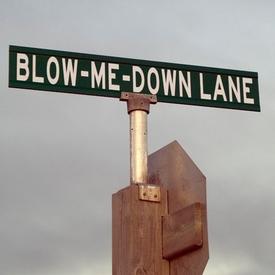The role of water in recipes?

nuffer
Posts: 402 Member
I'm relatively new to MFP and find it's working well and I'm progressing mostly on schedule.
My wife and I both like to cook, and on the nights she cooks, I've got her weighing ingredients and writing them down. (yes, she is awesome). We are even weighing cooking vessels and I'm doing the total weight in grams of food is number of servings, then weighing the amount of food taken from the pot. I find it kind of fun, at least for now.
My question: What is the role, if any, of added water to recipes? I added about 7 oz of water to a skillet dish tonight and I assume a goodly part of that was absorbed in the food. I put the water in the recipe calculator, but does it skew the nutritional info when you're weighing what you eat? Is water weight a factor in nutritional info that is calculated based on weight of the food?
My wife and I both like to cook, and on the nights she cooks, I've got her weighing ingredients and writing them down. (yes, she is awesome). We are even weighing cooking vessels and I'm doing the total weight in grams of food is number of servings, then weighing the amount of food taken from the pot. I find it kind of fun, at least for now.
My question: What is the role, if any, of added water to recipes? I added about 7 oz of water to a skillet dish tonight and I assume a goodly part of that was absorbed in the food. I put the water in the recipe calculator, but does it skew the nutritional info when you're weighing what you eat? Is water weight a factor in nutritional info that is calculated based on weight of the food?
0
Replies
-
Not really, although if you add water later (say, when reheating), that would skew things.0
-
The nutritional info won't be different since water doesn't have any nutritional value and the recipe servings are based on fractions of the whole recipe rather than final weight. However, added water will change the final weight per serving.My question: What is the role, if any, of added water to recipes? I added about 7 oz of water to a skillet dish tonight and I assume a goodly part of that was absorbed in the food. I put the water in the recipe calculator, but does it skew the nutritional info when you're weighing what you eat? Is water weight a factor in nutritional info that is calculated based on weight of the food?
One ml of water weighs one gram. 7 fluid ounces weighs 207 grams.
Let's say your skillet recipe yields 4 servings. The added water will add about 52 grams to each serving, not accounting for evaporation.
One serving (1/4th) of your recipe might weigh 240 grams without that water but 290 grams with the water for the same nutritional value. If you just weighed out 240 grams of food after you added the water, you wouldn't be getting a whole serving.0 -
It is always best to weigh the ingredients of recipes before you cook them.0
-
The best way to make sure water has no effect is to weigh things before you cook them, then again weigh the whole cooking pot later (if you are using weight as opposed to servings when recording recipes). If you aren't using weight, water makes no difference at all and the only variance would be the weight of your serving.0
-
That's very true. However, you then have to get your portion of the recipe out to eat. The post-cooked weight won't be exactly the same as the pre-cooked weight and you need to take things like added water into account when you are determining how much your portion should weigh.Cryptonomnomicon wrote: »It is always best to weigh the ingredients of recipes before you cook them.0 -
The portion calorie cost will not increase with water, so divide the total portions by the total number of calories. Weight everything before proceeding.0
-
Weigh your ingredients pre-cooking, weigh the total dish when it's done, weigh your portion. The water will make no difference because it is taken into account in both the weight of the total dish and the weight of your portion.0
-
You weigh all the food before it goes in. Then you create a total amount of calories for the entire recipe and attempt to divide it evenly. As foods cook they tend to lose weight as the water in them heats up and evaporates.
When I make chili I weigh the ingredients before cooking and come up with the total calories and macros for the entire pot of chili. When it is done cooking I then create 10 portions that are approximately equal.0 -
Thanks everyone. I've been weighing ingredients and the finished dish. I am probably overthinking things here and won't worry about what has been absorbed and what's evaporated. I'll assume the recipe calculator is dealing with the concept of weight of liquid ingredients including water. And yes, I've figured out that anything but the classic recipe tool is pretty much worthless.0
This discussion has been closed.
Categories
- All Categories
- 1.4M Health, Wellness and Goals
- 396.9K Introduce Yourself
- 44.2K Getting Started
- 260.9K Health and Weight Loss
- 176.3K Food and Nutrition
- 47.6K Recipes
- 232.8K Fitness and Exercise
- 454 Sleep, Mindfulness and Overall Wellness
- 6.5K Goal: Maintaining Weight
- 8.7K Goal: Gaining Weight and Body Building
- 153.3K Motivation and Support
- 8.3K Challenges
- 1.3K Debate Club
- 96.5K Chit-Chat
- 2.6K Fun and Games
- 4.5K MyFitnessPal Information
- 16 News and Announcements
- 18 MyFitnessPal Academy
- 1.4K Feature Suggestions and Ideas
- 3.1K MyFitnessPal Tech Support Questions






